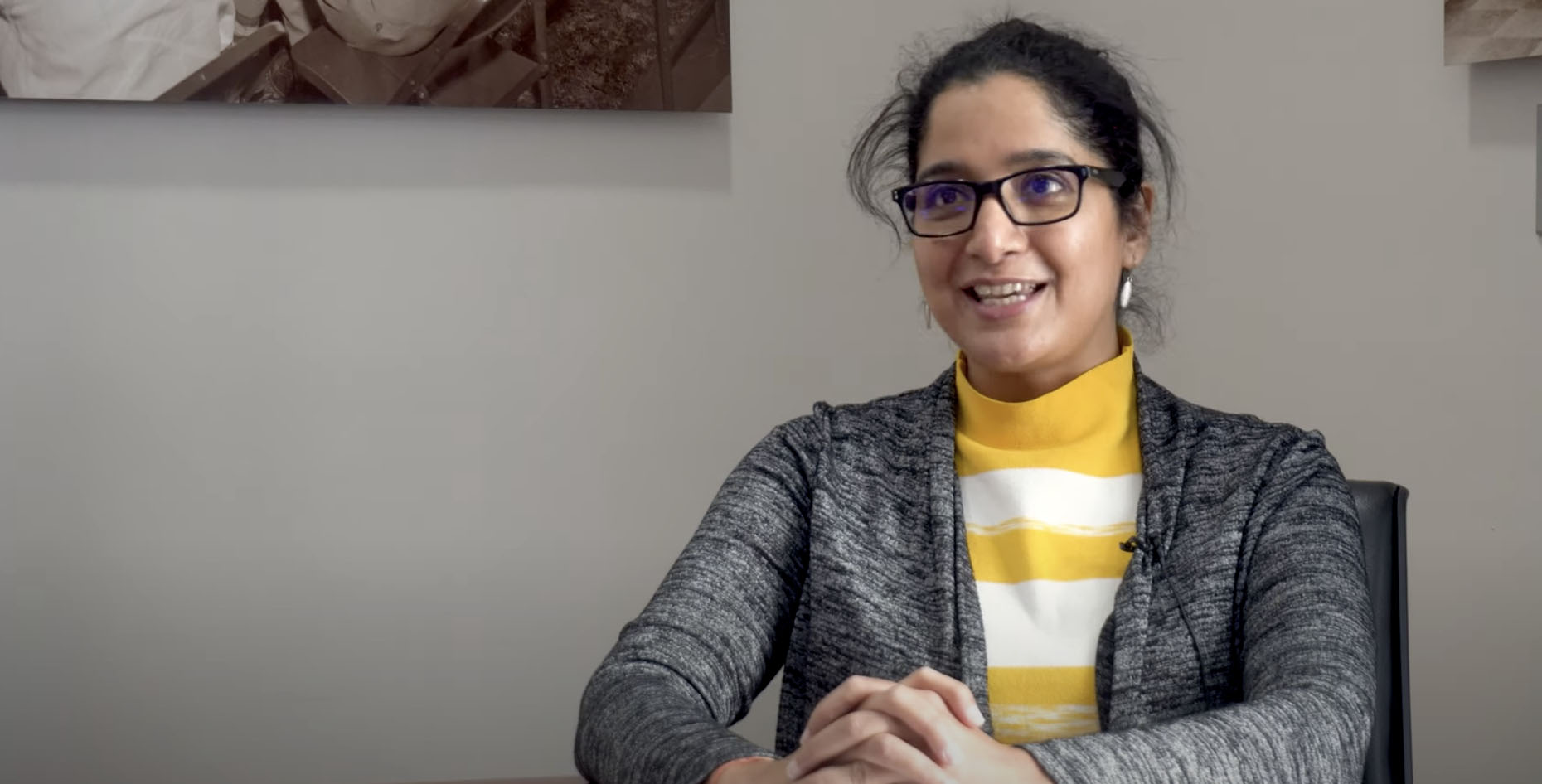'Improve their quality of life'
Mar 30, 2021
Multiple Sclerosis Awareness Month is a time to remember those who have experienced it, showcase those doing research
3 Questions with … Gera Geetanjali, PhD, PT
By Isabel Phillips
CHS Contributor
Clay Walker. Jack Osbourne. Selma Blair. Montel Williams. These are just some of the well-known celebrities who have become the faces of multiple sclerosis in America, where about 1 million people suffer from the disease that causes the immune system to mistakenly attack normal tissue.
The disease causes a wide range of symptoms that differ in severity from person to person, but can include: vision loss, pain, fatigue and impaired coordination. March is MS Awareness Month, which is a time dedicated to bringing awareness to new research surrounding the disease and its challenges.
Here at the College of Health Sciences, we sat down with Gera Geetanjali, PhD, PT, an Assistant Professor in the Physical Therapy Department, to discuss her research and contributions to MS rehabilitation strategies.

Here are 3 questions with Gera Geetanjali, PhD, PT:
1. How did you become interested/involved in MS research?
I was fortunate to do my post-doctoral training with Dr. Fay Horak at the Oregon Health and Science University. My post-doctoral training offered me an enriched learning environment to understand balance and postural control deficits in MS through collaborations with neurologists, neuroimaging experts, bioengineers and physical therapists. I secured post-doctoral funding from the National MS Society to investigate postural motor learning deficits in individuals with MS.
I also had the opportunity to learn from my research subjects, who were almost of my age, not only about how MS affects balance in women, but also how it changes their entire lives. These women were highly capable, talented and educated. Some were elite runners and dancers and were now walking with a cane. Post MS, they had to re-plan their day considering factors like how much they could do before fatigue takes over, will they be able to walk to the movie theater at night without tripping, etc. Another woman was excited to be pregnant but had a relapse soon after delivering a baby, affecting her ability to balance and ability to walk to take care of her newborn.
2. What is your research focused on?
Multiple sclerosis (MS) affects women almost three times more than men. Onset of MS occurs around 30 years of age, when these women are at the peak of establishing their career and family. Balance and mobility deficits contribute to the reduced quality of life in 60-80 percent of individuals with MS.
So, my goal with my research is to develop effective rehabilitation strategies to improve balance control in women with MS. I am working on investigating a critical, yet unexplored area of research — the contribution of multi-joint coordination deficits towards postural instability in people with MS. We are also investigating the interplay between cognitive and motor deficits in these individuals.
If we can understand the underlying mechanisms behind mobility and balance deficits in these women, we can provide targeted rehabilitation to improve their quality of life by increasing activity and participation in daily lives.
3. What does the future of MS research look like?
Our perspective of rehabilitation for treating MS patients has evolved over time. Physical therapy was contraindicated for MS around 100 years ago, when the only care offered was “bed rest,” in the fear that physical activity might accelerate neurodegeneration.
Exciting advancements are taking place in the development of disease modifying treatments to reduce the effects of MS. However, we still do not have a cure.